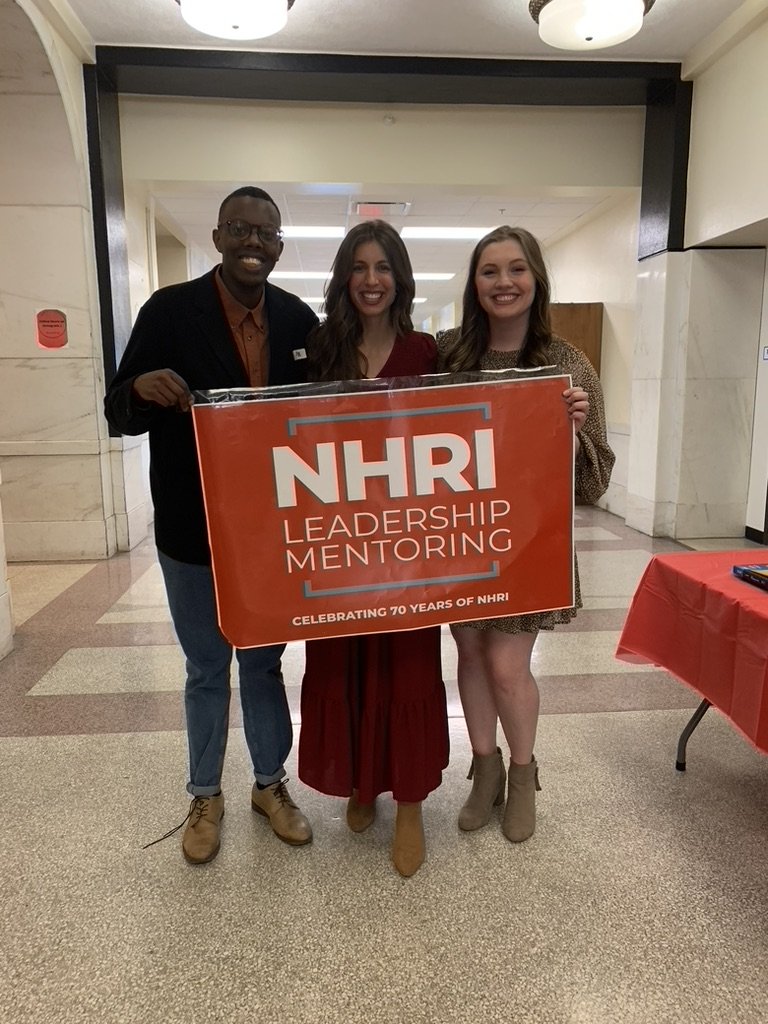Our History
The Nebraska Human Resources Foundation was established in 1949 at the University of Nebraska. At that time, the field of psychology was primarily focused on the diagnosis and treatment of people with problems. Very little was known about the psychology of success, the psychology of strengths, and the benefit of the positive psychology approach.
Dr. William E. Hall and Dr. Donald O. Clifton are considered the pioneers of the study of positive psychology. Their realm of academic study centered on examining students who seemed to relate well with people. Throughout all of their years of research, they learned that these students shared a common theme: they had people in their lives ("difference makers") who identified their strengths and provided them with opportunities to develop those strengths.
The powerful outcomes of this research sparked a new idea. With the help of James Stuart, Sr. of Lincoln's National Bank of Commerce, Nebraska Human Resources Research Foundation was born. In this innovative organization, outstanding college students (leadership mentors) were paired with equally outstanding local high school students (leadership mentees) in one-to-one relationships. Dr. Hall and Dr. Clifton continued to see that the best way to help people grow and to build on their strengths is to be involved in positive relationships with successful people who are willing and capable of investing in others.
For a number of years, Dr. Hall and Dr. Clifton administered the programs of the Nebraska Human Resources Research Foundation (NHRRF). Eventually, Hall and Clifton saw the possibility of applying their theories to a business setting, so they left the University. Together, the two men created Selection Research,Inc.
Since the days of Dr. Hall and Dr. Clifton, NHRRF has continued its legacy of developing leadership through investment relationships much to the credit of the directors who dedicated their lives to serve this organization: Dr. Galen Dodge (1965-1992), Dr. Susan Fritz (1994-1996), Janet Kauffman (1996-2008), Dr. Lindsay Hastings (2008-2020; Research Director: 2020-present), Dr. Hannah Sunderman (2020-2022), and Dr. Marianne Lorensen (2022-present). NHRRF has seen many locations and funding sources throughout its history, as well as a program name change to Nebraska Human Resources Institute (NHRI) in 1988 and another name change to “NHRI Leadership Mentoring” in 2019. (The Board of Directors retains 'Nebraska Human Resources Research Foundation' as the non-profit arm responsible for providing support for NHRI.) NHRI Leadership Mentoring continues to stand proud today, honoring its legacy of impacting the lives of thousands of college students and young people.
Dr. Clifton and Dr. Hall at at PDP (Potentiality Development Project) Retreat at Camp Kitaki, 1965
Our Mission
Discover individuals with exceptional capacity to positively influence the thoughts, feelings, and behaviors of others
Explore the dimensions of human leadership and ways in which this potential can be maximized
Develop leadership potential through one-to-one investment relationships
Direct developed leadership toward reinvestment in others
Document positive leadership development
Communicate this information
Basic Assumptions
The greatest resource is the human resource
Establishing positive human relationships is the best way to develop this resource
Positive human relationships are maximized when one individual with considerable human relations capital invests in another
Investment in human relationships nourishes positive leadership development
How the program works
College students (called “leadership mentors”) are selected for the program on the basis of demonstrating significant “human relations capital”—in essence, college students are selected because they behold a significant capacity to positively influence the thoughts, feelings, and behaviors of others. These leadership mentors are then paired in one-to-one relationships with identified young leaders (called “leadership mentees”) who also exhibit significant human relations capital. At any one given point in time, NHRI Leadership Mentoring works with approximately 180 college student leaders and 180 identified young 7 – 12 leaders within Lincoln Public Schools.
Leadership mentors meet weekly with their leadership mentees for three years. When mentors graduate, their mentees are paired with new college student leaders. The objective for the mentors is to identify leadership talents within their mentees and develop those leadership capacities by creating “stimulus situations.” For example, if a mentor recognizes that his/her mentee is an empathetic listener, that mentor might take the mentee to a local assisted living facility to talk with and listen to the residents. Afterward, the mentor might reflect with the mentee on what talents were observed and how those talents made a difference to the residents.
Based on the age or school of their leadership mentees, leadership mentors are grouped in “projects.” These projects meet once a week for an hour to discuss the progress of their relationships with their mentees. This reflection piece is designed to help each mentor study the development and outcomes of investment relationships. Leadership mentors and mentees have the opportunity to participate in a leadership development retreat each semester.
The ultimate goal is for the leadership mentees to become most effective at making a difference in the lives of others. The leadership mentors invest in their mentees with the intention that the mentees will then turn to invest in others, creating a “ripple effect.” NHRI has directly touched the lives of over 2000 alumni since its inception in 1949 and continues to impact countless others by the “ripple” created by these difference makers.



